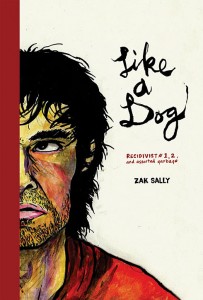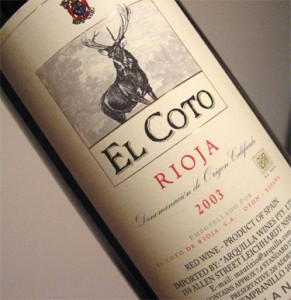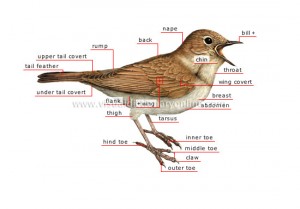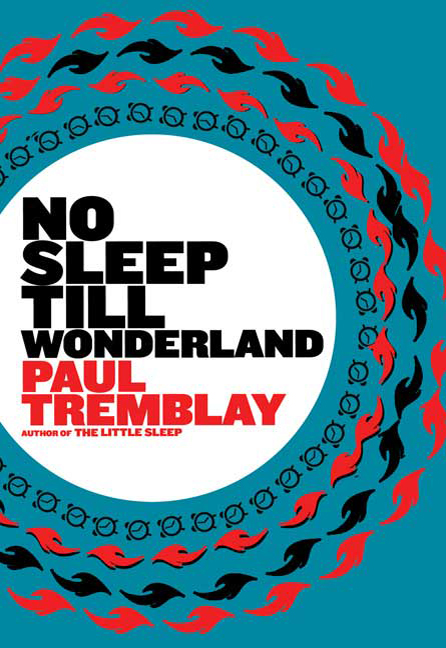Like a Dog
 You are supposed to listen to Low while reading Ander Monson’s book from back when, O.E.
You are supposed to listen to Low while reading Ander Monson’s book from back when, O.E.
Interview with Zak Sally at Bookmunch.
I mean, I really do think that’s an important thing for…everyone, for all human beings on some level – just asking “what am I doing here? why am I doing it? am I being an asshole, am I holding myself accountable for the things I’m doing in this life?”
It is better to be good than smart. That is the idea.
Like a Dog Review at Bookmunch.
I like saying the word munch.
Words begat images, images begat words. That is the idea.
Snow of syllables. Eat etchings. Cold. Thaw. Words.
The Postman’s Mother by Megan Savage
The postman has never penned a letter. Not on paper. For the postman a letter has always been a prayer sent upward from head to heaven. He has also never left home. Now, Mother rests abed, breath labored, bedsores hot. For supper, he serves her mashed potatoes and coleslaw, and afterwards he reads from Pearl S. Buck.
— from “The Postman’s Mother” by Megan Savage, published in Spork, 2006
There are no letter “i”s in this piece, a convincing nod to George Perec’s A Void, which I find very impressive. Try to write just one sentence like this; it is very difficult. This was originally published in 2006, but deserves a fresher read. Read the rest here.
Six-Word Memoir on NPR
 Since I missed the live broadcast, I’ve been waiting all damn day for NPR to post today’s “Talk of the Nation,” and now they have! Today’s show features a segment with homegirl-in-chief Rachel Fershleiser and guy-I’ve-met-a-couple-times-who-seems-cool-too Larry Smith, who are talking about their massively successful series of Six-Word Memoir books, the newest of which is It All Changed in an Instant: More Six-Word Memoirs from Writers Famous and Obscure. These books have become so big and so ubiquitous over the past few years that I think it’s easy to forget what a coup their success represents–the project was developed on the indie webzine Smithmag.net, and even after getting picked up by Harper Perennial (disclosure: also my publisher, blah blah blah) thrived in large part due to Fershleiser’s and Smith’s tireless hands-on DIY ethos, their willingness to throw countless events all across the country, and their ability to stimulate the continued interest, support and attention of thousands of contributors. None of which are remotely easy things to do once, much less over and over. So a hearty cheers to Rachel and Larry, and to the many NPR listeners who called in from all over the country during the segment to share their own six-word memoirs, especially Shelby the lunch lady from Lacrosse, Wisconsin: “The hairnet. Now we are equal.”
Since I missed the live broadcast, I’ve been waiting all damn day for NPR to post today’s “Talk of the Nation,” and now they have! Today’s show features a segment with homegirl-in-chief Rachel Fershleiser and guy-I’ve-met-a-couple-times-who-seems-cool-too Larry Smith, who are talking about their massively successful series of Six-Word Memoir books, the newest of which is It All Changed in an Instant: More Six-Word Memoirs from Writers Famous and Obscure. These books have become so big and so ubiquitous over the past few years that I think it’s easy to forget what a coup their success represents–the project was developed on the indie webzine Smithmag.net, and even after getting picked up by Harper Perennial (disclosure: also my publisher, blah blah blah) thrived in large part due to Fershleiser’s and Smith’s tireless hands-on DIY ethos, their willingness to throw countless events all across the country, and their ability to stimulate the continued interest, support and attention of thousands of contributors. None of which are remotely easy things to do once, much less over and over. So a hearty cheers to Rachel and Larry, and to the many NPR listeners who called in from all over the country during the segment to share their own six-word memoirs, especially Shelby the lunch lady from Lacrosse, Wisconsin: “The hairnet. Now we are equal.”
ropes, strings, poppea and 3 stories by Daniil Kharms
Watch all 3 parts.
They are lovely like fish.
“We had the feeling of a new morning / with the lights off.”
Looking for tic-tac-toe with yourself? When you are not even sure you have a self, when it feels more like a rumor shivering in a cathedral? Then hustle like a clod. Keep the night like an arm-around. And check out your new favorite poet, Jack Christian, who paints his boats to display the night and take you to it. He is all over the internet: featured at Ink Node, live at Sixth Finch, Thermos, and Gregory Lawless’s blog I Thought I Was New Here. He’s a poet of the fairgrounds, the airport, and the goodbye-for-real. I think his poem “I Am Yours” from Sixth Finch is my favorite of this web blitz, because it is true in the way that true-making is the only way true happens.
benmarcus.com
Ben Marcus has updated his personal website with new content, with excerpts of some recent work (specifically, a section of “The Moors” from the latest Tin House, and a piece on Thomas Bernhard from Harper’s in 2006). Hopefully this is a precursor to his hopefully soon forthcoming next novel, The Flame Alphabet.
He’s also put up some pieces by other authors, including a ridiculously sublimed piece, “The Copper Beeches” by the excellent Mark Doten. Check this man out:
Mother, father, me, here in the mansion, she and her father over the garage, the Mechanic’s House, we called it, her father a mechanic, then a suicide, still after his death we called it the Mechanic’s House, not the Suicide’s House. Spied through bedroom window, tits in profile, bigger by the year, opera glasses, the two of us children, just think, two children, running among the sycamores, then our crawl space where the Second Nocturne hissed. Our hand-crank record player, she wouldn’t have abandoned all that. And the stench in the foyer, lounge and conservatory, rotting meat. Perhaps a human stench, a human rot
I want Doten’s book Green Zone Kidz now.
INTERVIEW WITH PAUL TREMBLAY ABOUT SLEEP
I met Paul Tremblay at last year’s ReaderCon, and then I read his novel The Little Sleep, a noir about a detective with narcolepsy. His condition causes him to hallucinate and to confuse dreams with reality, which makes his investigations really difficult and his reliability as a narrator uncertain at best. I really dug it. Now there’s a sequel, No Sleep Till Wonderland, just out, so I asked Paul some sleep-related questions…
Kitty Snacks Guest Post: A conversation between Mary Miller and John Brandon
[Guest post from contest winner David Swider of Kitty Snacks.]
Kitty Snacks contributors Mary Miller and John Brandon sat down (at their computers) and emailed each other back and forth for about a week discussing different topics from writing to hanging out in their respective towns in Mississippi. John Brandon, the author of Arkansas (McSweeney’s), lives in Oxford, Mississippi (the home of Kitty Snacks magazine) where he is the John Grisham writer in residence, which means he gets a sweet house to live in, a few classes at the University of Mississippi to teach, and time to write. He has a new book coming out on McSweeney’s this summer. Mary Miller is the author of Big World (Hobart) and lives in Hattiesburg, Mississippi where she studies under Frederick Barthelme at the University of Southern Mississippi. Both writers were featured in Kitty Snacks #2 and they both have stories forthcoming in Kitty Snacks #3, which is out in a few weeks. — DS
Mary Miller asks John Brandon 7 questions
1. I was particularly interested in your story “Naples. Not Italy.” (which was published in Subtropics) because it’s excellent, but also because I’m currently writing a story in first person plural. I thought this POV was obscure but it seems like I’m finding it all over the place lately, particularly in flashes by contemporary writers. Do you write in this point of view often? What do you think you’re able to achieve using this perspective as opposed to first person singular, or third person?

John Brandon
I went on a first person plural kick. I wrote three stories in it, if that’s a kick. I think there’s something mysterious about that POV because the reader can’t pinpoint the origin of the information they’re receiving. And there’s an authority to it. Somebody may argue with you, but will they argue with you and a bunch of your friends? I read a Tom McGuane story where he uses first person plural to characterize a town’s sensibilities. I think that’s when I became interested in it. Yeah, mystery and authority.
10 Part David Foster Wallace Interview 2003
[Parts 2-10 available from the end of part 1. Thanks Gene Kwak]
Massumi and Malbec: Intro and Chapter One
 This is the first part of the discussion group for Parables for the Virtual: Movement, Affect, and Sensation. I am very late doing this. I am sorry. I was having whiplash and making phone calls because I got in a car wreck on the freeway. Nobody was seriously hurt, and more importantly, it was not my fault. But it happened and I am too easily derailed. There is a very wonderful Chapter Two post waiting for us; it is by Corey Wakeling. So I just want to do this so we can get to that. I am liking Massumi. I drank Rioja instead of Malbec because I had some.
This is the first part of the discussion group for Parables for the Virtual: Movement, Affect, and Sensation. I am very late doing this. I am sorry. I was having whiplash and making phone calls because I got in a car wreck on the freeway. Nobody was seriously hurt, and more importantly, it was not my fault. But it happened and I am too easily derailed. There is a very wonderful Chapter Two post waiting for us; it is by Corey Wakeling. So I just want to do this so we can get to that. I am liking Massumi. I drank Rioja instead of Malbec because I had some.
Are you reading Massumi? What is the affect–equated by him with effect and intensity–of reading Massumi? Not the emotion. What is the sensation? For reasons I shouldn’t like to understand, reading really good academic prose turns me on as I read it, literally, but I haven’t read much of anything like this since college, so getting into Parables for the Virtual lent a tender, nostalgic, aroused sensation. Like the children in Ch. 1 I equate arousal with pleasure.
Here are some things I would love to talk more about if you would like to talk more about them:
Intro pp. 12-13. False modesty, wrongthinkingness of critics who think it is not their job to create. At times Massumi is writing about how to write, which was a nice surprise.
Ch. 1 pp. 24-25. The way Massumi writes “form/content” blows my mind. I know we can’t totally divide form and content, but to conflate/equate them thus is, for me, hard to do. Please help.
28. “[Emotion] is intensity owned and recognized.” Crucial distinction/delineation.
[I’m relieved that Massumi compared his own prose to a black hole]
39. Kinds of aphasia and their inverses. How they could help us hear.


